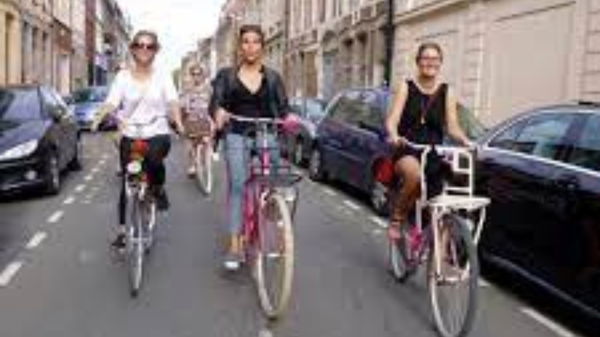

Cycling trips frequently bring solace by pedaling through life’s bitter hurdles. The fun rides, being a common exercise for many, have grown popular with human evolution, gaining their spot as a specular sport. However, when a recent announcement on safety regulations surfaced online, it seemingly had an array of impacts on these vividly embraced ventures. According to reports, cyclists from the United Kingdom and France were presented with shocking bans, igniting a flame of debate ever since.
Watch What’s Trending Now!
Following the unexpected modifications in the UK, the North East Lincolnshire Council declared a sudden ban on cycling in the Grimsby region. While this astonishing decision brought the Public Spaces Protection Orders into the limelight, such steep amendments in street regulations stirred up the local community. However, the authorities defended their move, mentioning that the motive behind enacting these rules was primarily to address concerns over frequent misdemeanors.
ADVERTISEMENT
Article continues below this ad
‘Antisocial behavior’ calls for legal halt in cycling adventures in the UK
Focusing on the bigger picture, the law enforcement departments attempted to explain the change, notifying how cycling trips in the locality have ended in brawls. Additionally, they also pointed out accusations against cyclists for targeting older and slow-paced riders, marking many unjustified acts of misconduct. As the ban was placed, the regulations for the area are now coupled with substantial fines for violations. However, it portrayed unclear signage, showcasing loopholes that stirred up controversy in no time.
Read More: Cycling fans left unhappy with Olympics champion after he wins bronze medal after an ugly collision
ADVERTISEMENT
Article continues below this ad
Meanwhile, in Nuneaton, local authorities faced pressure to introduce a ‘no cycling zone’ in response to concerns over unacceptable and dangerous cycling rides. Shockingly, these reports also mentioned some riders exhibiting ‘antisocial behavior’, which gained the attention of local authorities, as they cited instances. Some of these incidents included children performing daring stunts on their bikes or cyclists, creating an unsettling atmosphere in public areas. Consequently, as per Road, the city council of Lille was seen to ban bikes, scooters, and even skateboards, prohibiting individuals from riding on the lanes along the English Channel.
Harrowing barriers pedal beyond nations
While the locality claimed to have ‘scared’ residents after a hike in cycling adventures, its effects were unchangeable, making its impact across the borders. This move, which was supported by a pro-walking campaign group, soon called for similar stances in France. Lille’s deputy mayor defended the move, proposing fines of €35 to €135 ($42.51 to $163.98) for those breaching the ban while encouraging strict actions against cycling mishaps.
Adding to that, cycling was made vulnerable to fines for a wide range of misdemeanors, with higher penalties reserved for fast riders or even those wearing headphones. Sadly, it did not stop at the borders, with the areas of Nice, Agen, and Niort also joining the fray. As a result, other councils are currently facing mounting pressure to follow suit, while the measures have received their fair share of criticism. Thibault Quere, the spokesperson for France’s National Federation of Bicycle Users, expressed his concern, labeling the bans as worrying and absurd.
ADVERTISEMENT
Article continues below this ad
Quere underscored the subject by highlighting the presence of V’Lille cycle hire docking stations, which were located within the prohibited zones. Amid these controversies, with every turning wheel, the future of cycling in numerous localities faced a brutal conclusion. Without a doubt, striking a balance between road safety, pedestrian comfort, and the rights of cyclists seemed to be a complex task, as the locals hoped for a better outcome.
Watch This Story: Mastering the art of bicycling in a suit
ADVERTISEMENT
ADVERTISEMENT
ADVERTISEMENT
ADVERTISEMENT


